Celebrating censored films
Peruvian film festival Censurados celebrates its 10th edition this month. Director Teresa Castillo reflects on the past 10 years, how the current political situation in Peru affects the festival and stresses the increasing importance of a festival like Censurados in these times. 15 January, 2024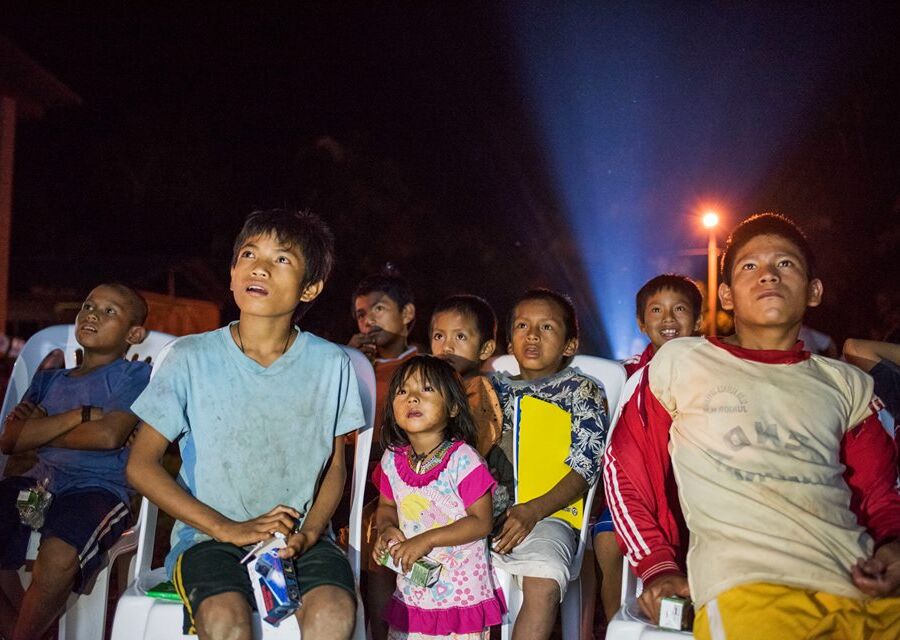

Censurados is an annual film festival in Peru that focuses on the dissemination and visibility of censored films from around the world. Taking freedom of expression as a starting point, the festival addresses various human rights issues by bringing cinema to communities throughout Peru. In this way, Censurados aims to provide a platform where a diversity of voices and artistic expressions can be expressed freely, and to open up spaces for dialogue about relevant issues.
This focus on freedom of expression and censored films is not accidental, considering Peru’s history of censorship policies. Emerging from a legacy of authoritarian leadership and conflict, Peru has seen developments towards democratic governance in the last two decades. Nevertheless, corruption and restrictions on press freedom are part of daily life in Peru. Human rights are often disregarded, let alone openly discussed. Censorship is taken as a starting point for topics on sensitive matters or for criticism of the government. However, in the past year the situation in Peru has escalated. The controversial ousting of President Pedro Castillo on 7 December 2022 together with his subsequent arrest and replacement, caused longstanding sociopolitical tensions to erupt into nation-wide protests.1 These protests were violently cracked down by the current government, which resulted in the deaths of dozens of protestors. A year later the political situation remains unchanged; despite pressure from civil society, the government has held on to power. With no prospect on political reforms to address the fundamental sociopolitical issues in Peru, it is only a matter of time before further popular unrest escalates.
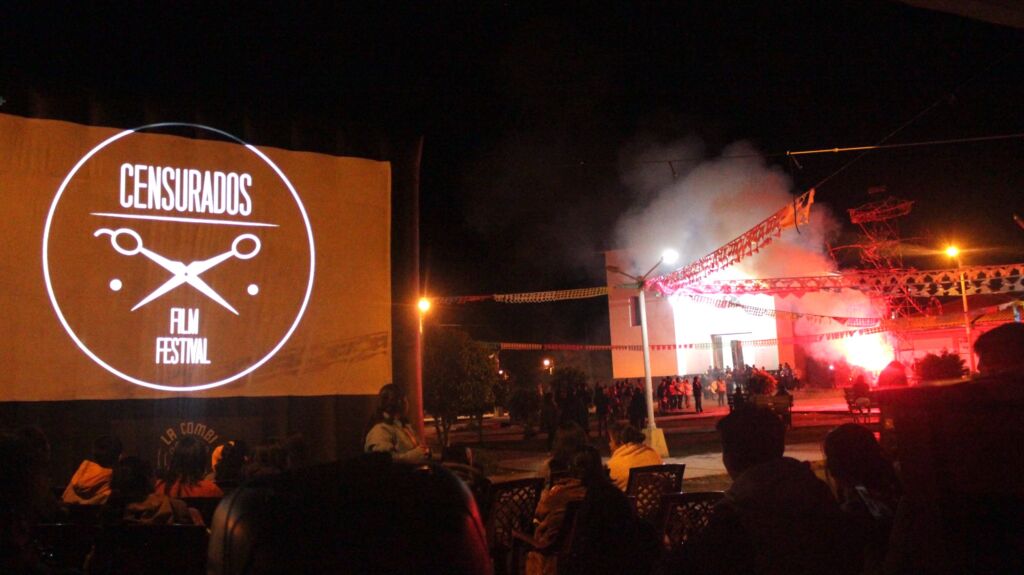
Censorship in Peru has thus reached new heights, and it is in this climate that Censurados itself was targeted by censorship last year. At the last minute, the municipal government banned the festival from public spaces, forcing the screenings towards private indoor spaces. As many Peruvians do not have access to cinema, this severely restricted their outreach to the general audience. Hence, Censurados was subjected to the very issue it is trying to address: censorship.
A space for dialogue
Despite facing challenges with state repression, Censurados has developed considerably since its first edition in 2014. In fact, the festival did not start out with a human rights focus, but developed from a project called Normalas, nowadays known as “La Combi Arte Rodante.” This project brought cinema to communities that had never experienced film before, its sole purpose thus being to provide these communities with entertainment. However, Teresa explains, seeing the problems that many of these communities were dealing with, including human trafficking and illegal mining, the festival realised their potential to start conversations on these social issues through cinema. They started setting up workshops on filmmaking for young people in these communities, which allowed them to express their views and thoughts about these issues. From there, the idea of the festival Censurados was born and subsequently evolved over the years into an annual festival centred around censored films and freedom of expression. Yet, this development of the festival did not come naturally. Rather, it has been a journey of discovering what works well for the festival and what does not.
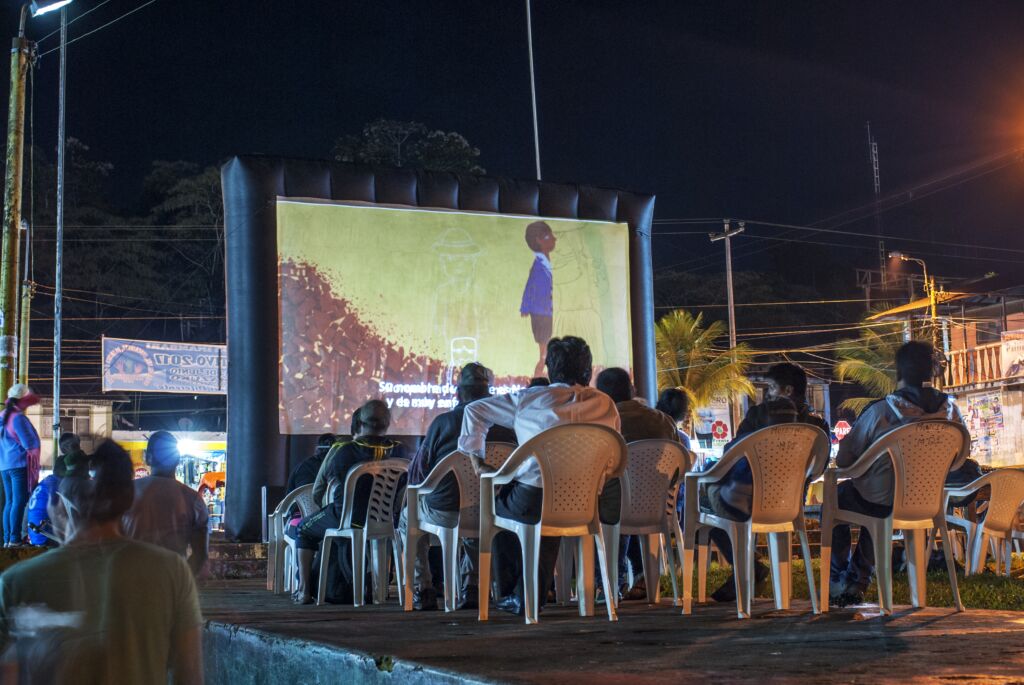
A constant learning process
Teresa emphasises how organising the festival is a constant learning process: ‘If you ask me, what does it mean to organise a film festival, it is: learning, learning, and learning, every day.’ Throughout its various editions, Censurados has increasingly experimented with the inclusion of different art forms at the festival as a means to remain relevant in the insecure Peruvian festival landscape. Due to difficulties with acquiring financial support and the festival’s dependency on a team consisting exclusively of volunteers, the existence of Censurados remains insecure each edition. Therefore, it is important for the festival to secure its relevancy by tailoring the festival to the audience they want to reach. The festival aims to do this by diversifying their activities. In Teresa’s eyes, a sole focus on cinema will be the downfall of the festival, considering the dominance of large streaming platforms. While cinema remains the main instrument of dialogue of Censurados, the festival is experimenting with different art forms and activities, such as music and comedy, aspiring to be “more than just a film festival.” When it comes to music or comedy, it is sometimes more relatable to Peruvians than film, as they often might have access to these forms of entertainment, but not to cinema.
Furthermore, the festival is constantly thinking and rethinking how they can communicate their focus on human rights, especially to be more attractive to the younger generation. Since talking about human rights in Peru is associated with leftist hippies, this topic alienates many Peruvians as a target audience. Therefore, the festival aims to use cinema for topics which connect well to the daily lives of the communities in which the film screenings are held. In that way, conversations regarding human rights do not become sidelined as leftist issues, but rather it becomes a way to stimulate conversations about struggles that these communities face themselves. It is this valuable exchange with the communities that remains at the centre of Censurados.
The heart of the festival is to create this space for dialogue, not to say this is white or black.
With its tenth edition coming up in January 2024, Censurados has been around for a decade. Yet, its durability is anything, but a given. Therefore, Censurados is in a continuous learning process to organise a festival which is not only accessible, but which people can relate to as well, focused on stimulating dialogue in communities about important topics.
They make you believe you can do it
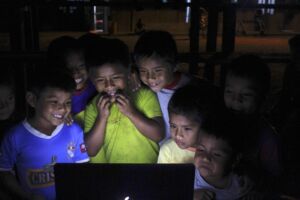
Bearing in mind these kinds of challenges, it has been valuable for Teresa and her team to connect and learn from other film festivals through Movies that Matter. Teresa recounts how the various Movies that Matter programmes have been a constant source of support for the festival throughout the years. Next to the financial support of the grant programme, the advice, contacts and inspiration have been fundamentally important to Censurados. Teresa: “without Movies that Matter, we would not have Censurados film festival. It was fundamental, but not only the money, but also because they make you believe you can do it.” Likewise, participating in Cinema Without Borders and becoming a member of the Human Rights Film Network has facilitated the exchange with other film festival organisers and allowed the Censurados team to expand their network within the film festival industry. On the whole, Teresa concludes: “Movies that Matter is not restricted to a single country, but is there for the world, to foster connections and exchanges for a better human rights film network internationally”.
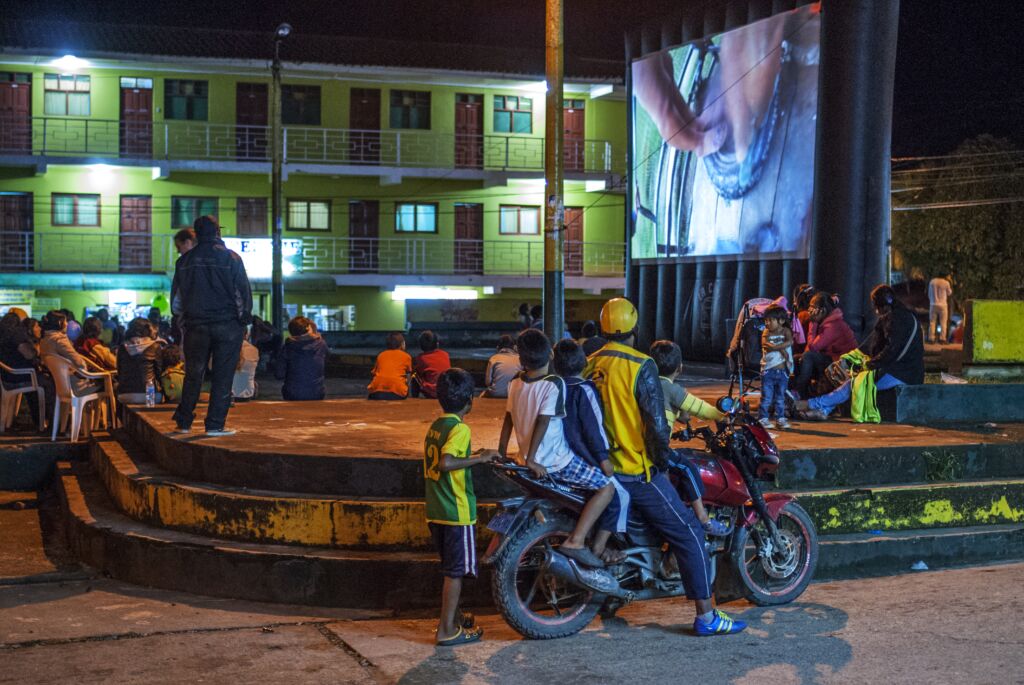
This exchange with other human rights film festivals is ever more important to Censurados considering Peru’s current unstable and repressive political climate. Teresa recounts how the festival team initially assumed that Censurados would be a temporary project, convinced that political conditions in Peru would improve and that censorship would reduce. Ironically, ten years later, censorship is abound in the country, making Censurados more relevant than ever before.
This year, Censurados’s tenth edition is taking place from the 12th of January to the 18th of January in Arequipa, the second-largest city of Peru. The annual theme is “Artists against the Dictatorship”. The first edition of the workshop programme Festivales que Inspiran (FQI) will take place during the festival as well. This workshop is created for film- and audiovisual festivals and projects focusing on human rights to learn more about how to organize human rights film events. Movies that Matter’s international support team is traveling to Arequipa for this workshop programme and will be giving workshop sessions. In that way, the valuable connection between Censurados and Movies that Matter is once again amplified in a continuous exchange of knowledge and solidarity.
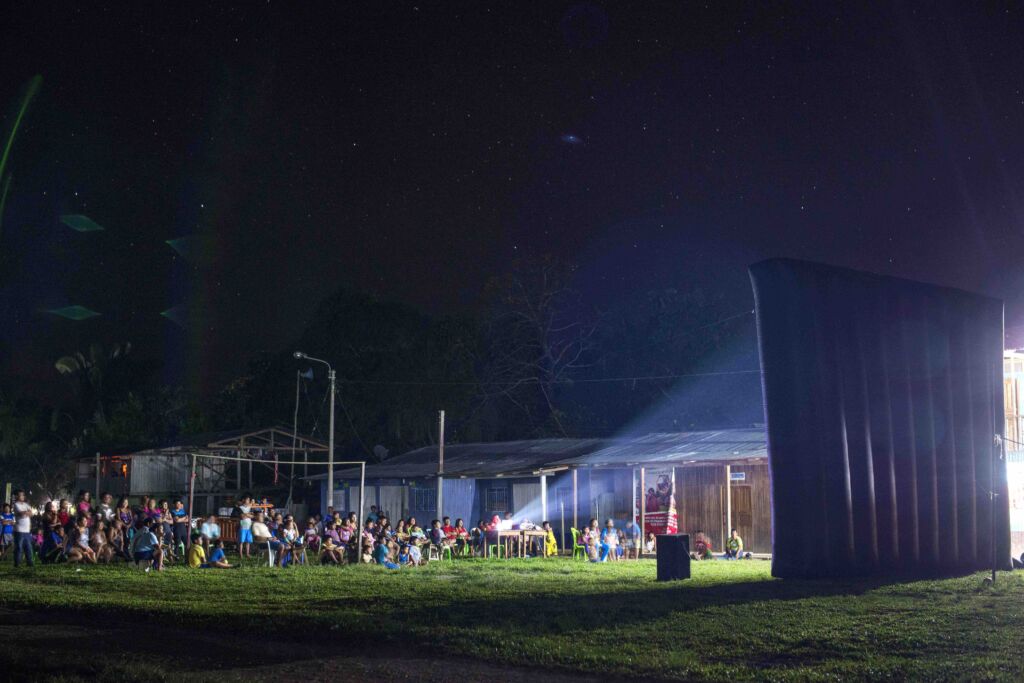
The International Support team is committed globally by financially supporting human rights film festivals (Grant Programme), film screenings at embassies (Embassy Film Menu), a programme for activists (Activist Programme), coordinating a partnership between festivals (Human Rights Film Network) and workshop programmes for film festival organisers (Cinema without Borders).